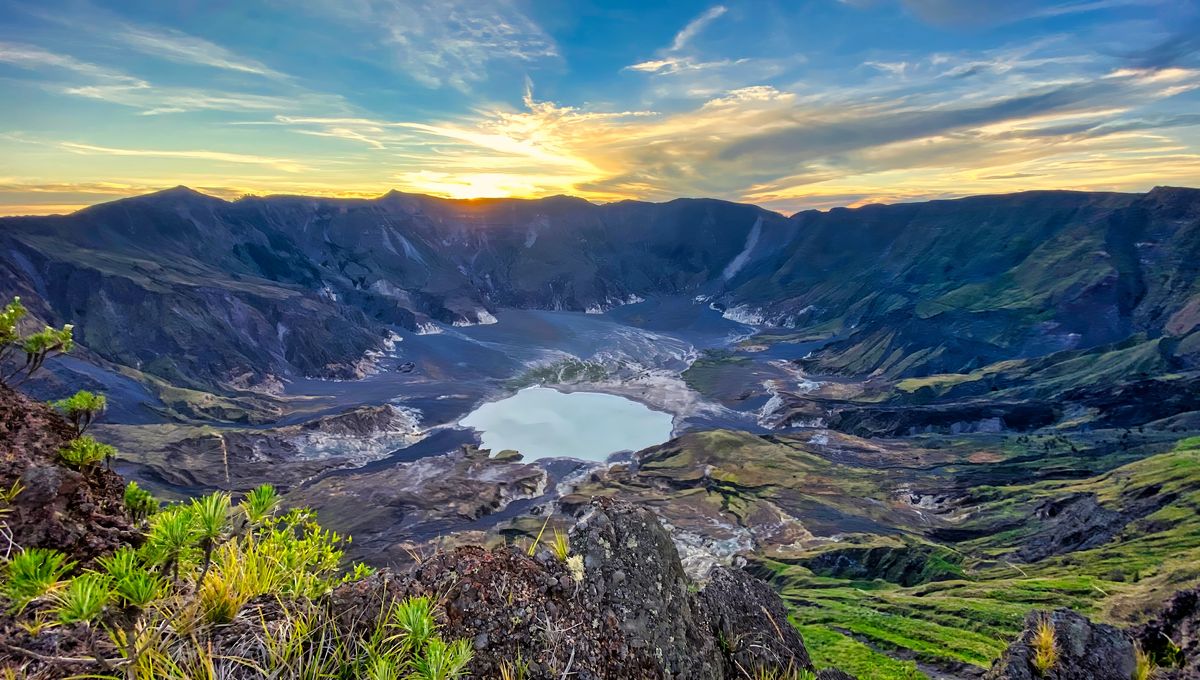
Summer normally sees the trees full of green, blue skies (ok, maybe not here in England), and deliciously warm, long days – but for people living in the Northern Hemisphere in 1816, those days never came.
What was “The Year Without Summer”?
The Year Without Summer was pretty much what it says on the tin; on a global scale, temperatures had dropped by around 2 to 7 °F and as a result, weather patterns around the world were disrupted.
In the US, instead of summer warmth replacing the winter, the bitterly cold weather remained. The month of May can occasionally get a little chilly under normal circumstances, but in 1816, frost persisted across many of the eastern states. June saw snow. Rivers in Pennsylvania were still frozen over come July.
Across the Atlantic, Europe was subject to torrential rains – in Ireland, it didn’t stop raining for eight consecutive weeks. US President John Quincy Adams, who was at the time ambassador to Great Britain and living in London, bemoaned in his diary the freezing rain showers and thunder that had left him unable to leave the house in early July.
The effects of the global temperature drop even stretched into Asia, where the usual monsoon season was disrupted, leading to droughts.
What were the consequences?
As a result of the unseasonable weather, crops across several regions failed. In the US, this was primarily due to the continuing frosts in the spring – which may have also led to farm animals dying according to diary entries written at the time – whilst in Ireland, floods resulting from the heavy rains killed off the year’s potato harvest.
It was a lack of rain that was the problem for crops in Asia, with droughts caused by the delayed monsoon season. In many of the affected areas across the Northern Hemisphere, the unsuccessful harvest led to famine.
The impact on crops is also believed to have resulted in one of the longer-term impacts of The Year Without Famine – a significant migration of farmers from the east of the US into the Midwest, which remains intensely agricultural to this day.
What caused it?
The root of this unusual weather requires us to travel back a year previous to Sumbawa, an island in Indonesia. There, on April 5, 1815, the stratovolcano Mount Tambora began to violently erupt.
Volcanic eruptions can influence the planet’s climate for months. This can happen when tiny, light particles of ash remain in the stratosphere, and end up blocking sunlight, leading to cooling.
Temperature drops can also be the result of eruptions spewing out sulfur dioxide. This combines with water in the stratosphere to make sulfuric acid, which in turn reflects the incoming solar radiation that would otherwise warm the planet up.
Given the scale of the Mount Tambora eruption – it was the most powerful eruption in recorded history – it was suspected that the conditions seen in 1816 may have been the result of it, though the degree to which it played a role wasn’t entirely clear.
Then, in 2019, geoscientist Dr Andrew Schurer and colleagues used climate models to figure out what the weather might have been like without the volcano. Though the result suggested 1816 may have still been an unusually wet one in Europe, the model indicated it was the eruption that made temperatures so chilly.
“Including volcanic forcing in climate models can account for the cooling, and we estimate it increases the likelihood of the extremely cold temperatures by up to 100 times,” said Schurer in a statement. “Without volcanic forcing, it is less likely to have been as wet and highly unlikely to have been as cold.”
All round, 1816 was not a fun year for the planet and its people. Probably why some ended up calling it “Eighteen Hundred and Froze to Death”.
Source Link: In 1816, The World Saw A Year Without Summer